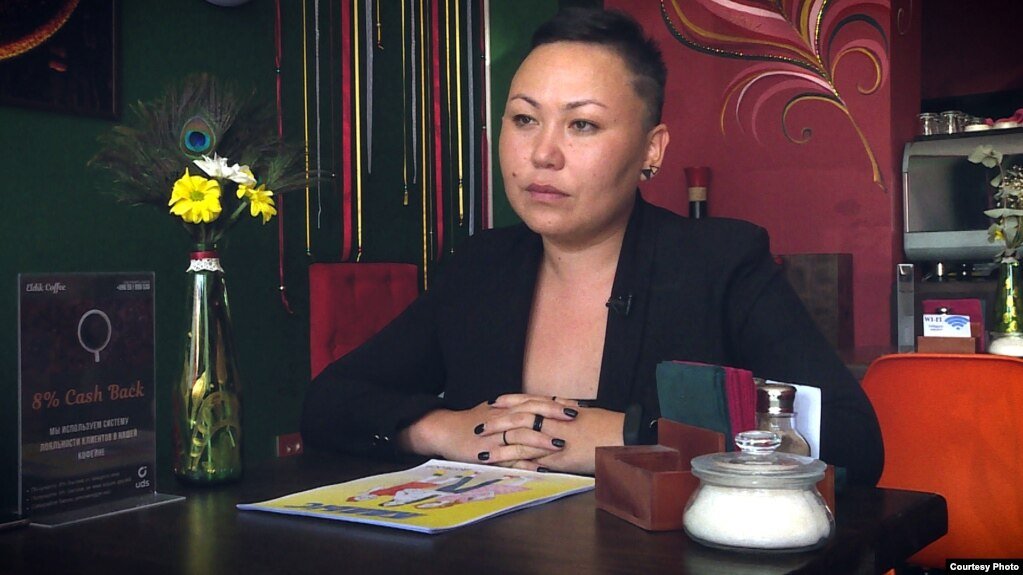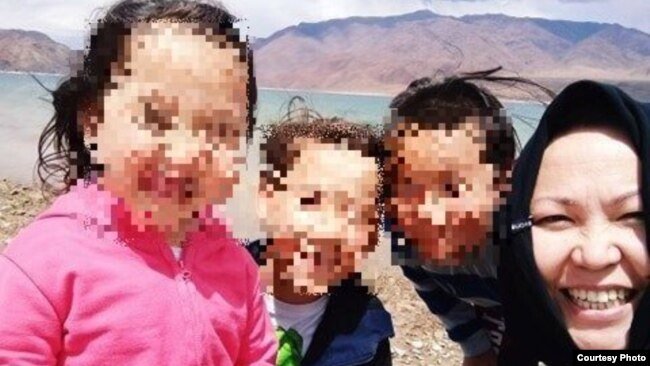BISHKEK (Kyrgyzstan): Activist Altyn Kapalova says she broke “patriarchic norms” in Kyrgyzstan by giving her three children “middle names” that derive from her own first name.
The matronymics on the children’s new birth certificates replaced the traditional patronymics that originated from their fathers’ first names.
Kapalova, 37, also gave her children — who are five, 10, and 15 years old — her surname.
Like many former Soviet republics, Kyrgyzstan has largely kept the tradition of Russian-style patronymics. It is a combination of the father’s first name with suffixes -ovich or -evich for men and -ovna and -evna for women and is presented as a middle name would be in many Western countries.
But the Central Asian country’s Civil Registry Office is unhappy with her actions and is suing the single mother for breaking the law.
Kapalova says the biological fathers of her children have been absent from their children’s lives and “haven’t given the children any money or a minute of their time.” She adds that they only created problems by “refusing to sign all kinds of parental-consent forms.”
On January 19, Kapalova shared the photos of her children’s new birth certificates on her Facebook account.
“It’s a small victory of feminism over patriarchy,” wrote Kapalova, who is known in Kyrgyzstan as the author of children’s books and an outspoken campaigner for women’s and children’s rights.
Registry Office officials only found out about the unprecedented name changes after Kapalova took to social media to announce her “victory” and the feeling of “happiness and freedom.”

Kapalova says she fought a lengthy legal battle with her former partners for full parental rights of the children before she changed their names.
The next step, she said, is to “get travel documents, to save some money, and go traveling with the kids once the pandemic is over.”
But standing in her way is the Civil Registry Office that argues Kyrgyz laws don’t allow matronymics to be used.
“There is no provision in the law to give children matronymics. Children can only get patronymics that derive from the first name of the biological father, or adoptive father, or stepfather,” Galiya Amanova, the deputy head of the agency, told the 24kg news agency.
Amanova explained that legally depriving the father of parental rights “can’t become the basis to register a child with a matronymic.”
Asked how Kapalova’s children could have received new IDs with matronymics and her family name, Amanova said it was due to errors by a Registry Office employee in Bishkek.
Support from friends and family
Kapalova told RFE/RL that before applying for the name changes she discussed everything thoroughly with her children. She says she also got the full support of her friends and relatives.
“My children didn’t understand why they were carrying the surnames and patronymics of people they don’t know,” she adds.

Kapalova says her actions are more about “gender equality” than feminism and hopes it will pave the way for other women in her situation to have a choice in choosing their children’s family names.
“Our government has signed international treaties and has pledged to eliminate all forms of discrimination against women. But it’s now suing me because my children use my name,” Kapalova told RFE/RL.
“It shows that the patriarchic agenda is important for the government.”
In Kyrgyzstan, a predominantly Muslim nation of some 6.5 million, the law provides for equal rights for women and men. Women study, work, and participate in politics — the country even made history by having a female president.
But violence against women — primarily domestic abuse — remains commonplace in the male-dominated society.
Kapalova’s Facebook posts about the name change and upcoming legal battle with the Registry Office have attracted hundreds of messages of support.
“This is a victory and inspiration for many other women who encounter similar problems,” wrote Facebook user Ainura Cholponkulova.
“It’s all very fair. Great precedent,” commented Alma Karsymbek.
“I will do the same,” wrote Cholpon Arkabaeva.
Dozens of people also gathered near a Bishkek court to support Kapalova on February 25 when a hearing on her case was set to take place. But the trial was postponed until March 4 — upon which it was postponed a second time..
Written by Farangis Najibullah based on reporting by RFE/RL’s Kyrgyz Service and Current Time.

The High Asia Herald is a member of High Asia Media Group — a window to High Asia and Central Asia
